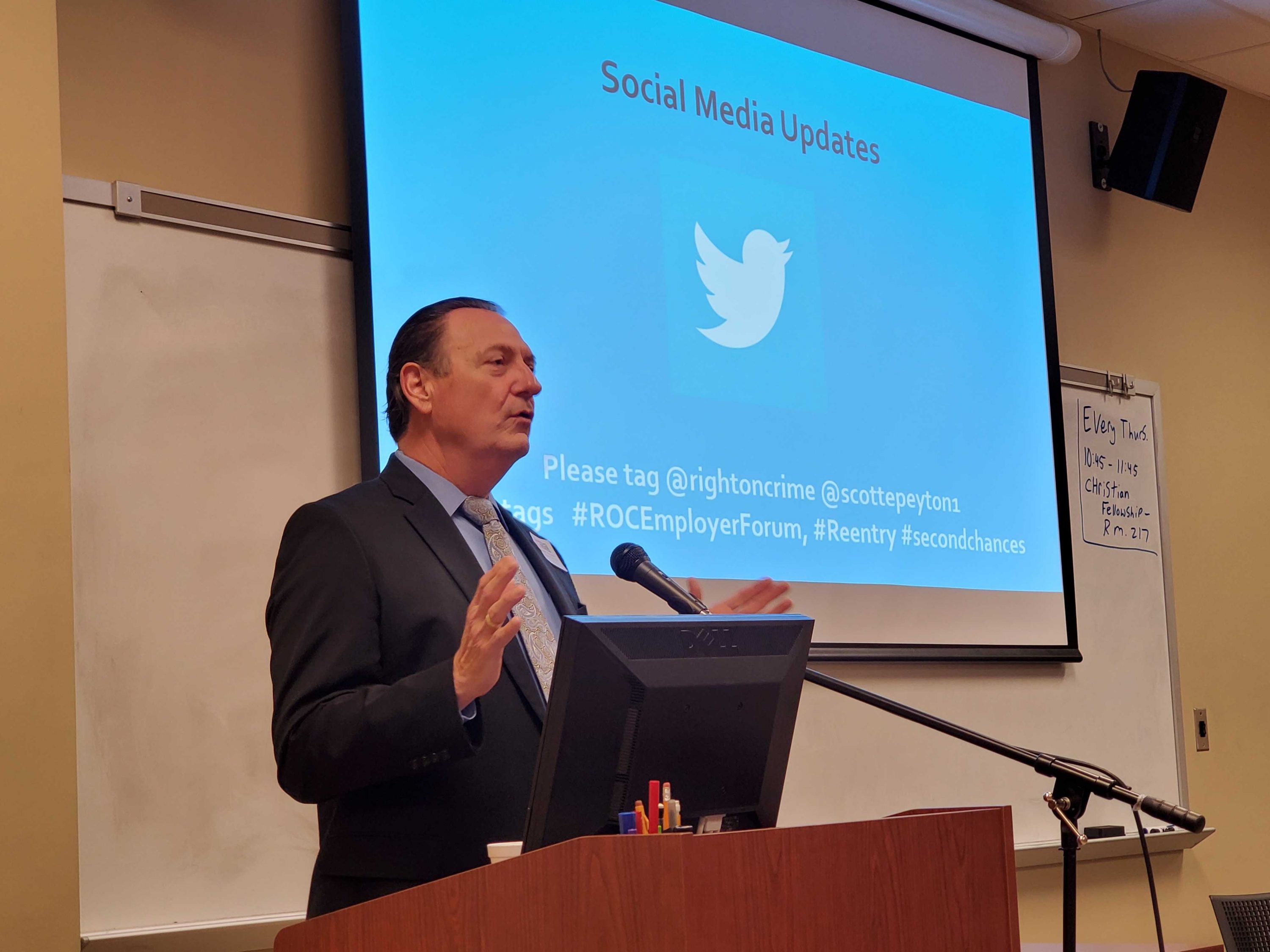
LPSO School Traffic Guard Dies After Being Struck By Vehicle
February 20, 2020
Street Closure Times for West Side Parade Route
February 20, 2020GRAY – A group of law enforcement, law makers, and employers gathered at Fletcher Technical Community College to discuss the importance of a second chance.
Right on Crime held a meeting to advocate change in the way those reentering society are treated, Tuesday, February 20. Sheriff Craig Webre, incoming Sheriff Tim Soignet, Rep. Tanner Magee, and Judge Juan Pickett were among those in attendance. Right on Crime is a Texas-based Conservative think-tank focused on criminal reform.
“If we believe that once you pay your debt to society you should have a level playing field, then we have to make some institutional changes,” said Webre.
Those in attendance, spoken with, agreed that some criminals would never reform, but that was a small portion.
According to data provided by Scott Peyton, State Director for Right on Crime, 95 percent of prisoners will return to society (18,000 per year in Louisiana). The meeting was focused on removing the barriers to reentry facing those 95 percent. To turn those who re-enter, such as nonviolent criminals, as Webre described, from tax burdens to tax praise.
Magee described tax dollars spent on criminal reform as an investment, and said that society should expect a return on that investment.
“It shouldn’t be, ‘Let’s keep throwing money at the problem and hope it works,'” said Magee. “You should be looking at, ‘Is my dollar coming back to me in a way that’s fiscally responsible?'”
In the past, a focus was made on being tough on crime. This has caused Louisiana to be one of the leading incarcerators in the world – even over countries like China, and India.
Webre said law enforcement efforts in the past only had a focus on apprehending criminals. He then asked the crowd, wouldn’t it make sense to spend an appropriate amount on reforming their behavior?
Here in the South, Magee said, religious practices emphasize the concept of redemption, but that hasn’t been reflected in our criminal justice system.
“We’re raised with that thinking, and yet we don’t acknowledge it in our criminal justice system,” said Magee.
Peyton explained there are two types of barriers to reentry, some are governmental and some are simply the stigma that follows the formerly incarcerated.
“We can’t expect people to come out of prison and succeed if we’re creating barriers for them: some are governmental induced, others are just the stigma that’s associated with people that have a criminal background,” he explained.
He said it’s important to understand the charge, this would reduce stigma. For instance, he said, a sex offender probably wouldn’t be a good idea for a day care, or a violent criminal to be working with the public. But Peyton argued that someone with a criminal past, who was not committing anymore bad behavior deserved a second chance.
“People can change,” he said. “A second chance is important.”











